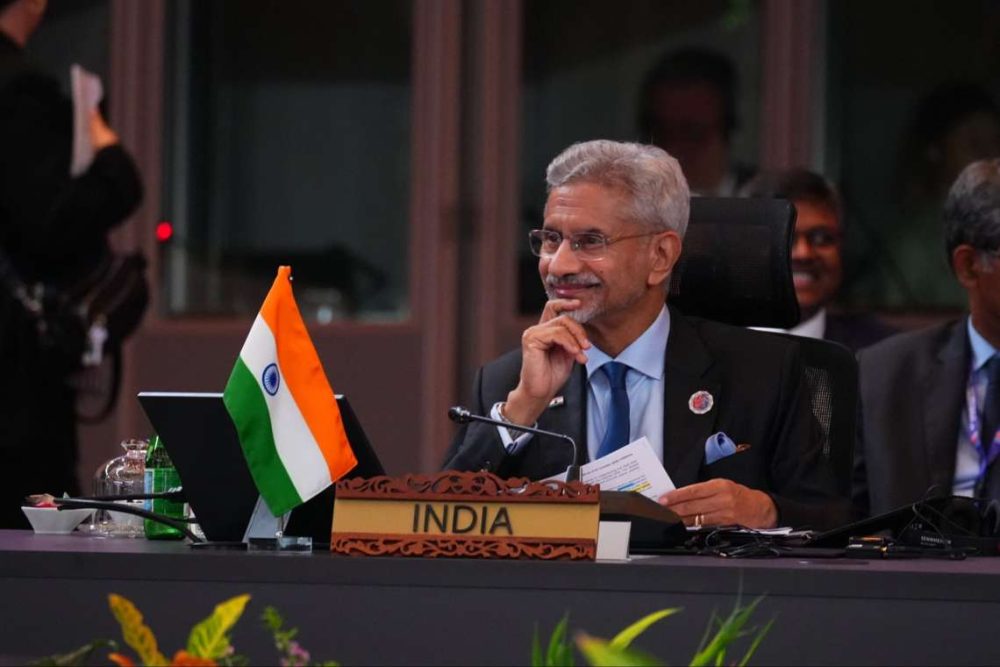Passed on July 16 with backing from the ruling coalition and far-right Chega, the bill would have forced hundreds of thousands of legal migrants to wait two years before bringing immediate family.
Portugal’s Constitutional Court has struck down key provisions of a controversial immigration bill passed by the country’s right-wing parliamentary majority, ruling that it would violate constitutional protections by making it harder for legal migrants to reunite with their families.
The bill, approved on July 16 with the support of the centre-right ruling coalition and far-right Chega party, would have required hundreds of thousands of legally resident migrants to wait two years before applying to bring immediate family members to join them. Highly skilled workers and investors with special residence permits would have been exempt from the restriction.
In its decision, the court said the bill’s measures were likely to lead to “the separation of family members” of foreign citizens legally residing in Portugal, amounting to a breach of rights enshrined in the constitution. Judges also ruled unconstitutional the proposed extension of the maximum review period for family reunification requests from 90 days to nine months, saying this violated the state’s duty to protect the family. Another provision, which would have excluded a spouse or equivalent partner from eligibility in certain cases, was deemed incompatible with constitutional guarantees of family unity.
Immediately after the ruling, President Marcelo Rebelo de Sousa vetoed the amended Foreigners Law and sent it back to parliament, which is in recess until September. The president had already raised concerns during the drafting stage, criticising the process as rushed, and had referred the bill to the court for a preventive review. Last month, he asked the court to examine whether the bill violated principles of equality, proportionality and legal security.
The legislation is part of a broader shift in Portuguese politics, mirroring trends in other European countries where governments are tightening immigration rules in an effort to counter the rise of the far-right. Left-wing opposition parties denounced the bill as inhumane and accused the minority government of allowing Chega to impose its anti-immigration agenda. The government has rejected that claim, arguing that the growth in migrant arrivals requires more rigorous controls.
Prime Minister Luis Montenegro said the government would respect the court’s decision but intends to adjust the bill to comply with constitutional requirements while maintaining its policy objectives. Minister of the Presidency Antonio Leitao Amaro stressed that the administration would not abandon the proposed changes, pledging to rework them for future implementation.
The now-rejected provisions would have ended the possibility for most legal residents to immediately apply for family reunification, delaying the process for two years. The bill also sought to tighten requirements for migrants from Community of Portuguese Language Countries, who currently enjoy relatively broad privileges, by requiring them to obtain long-term work or residence visas from their country of origin before joining relatives in Portugal.
Portugal has seen a rapid increase in migration in recent years, placing pressure on public services such as housing, education and healthcare. Authorities cite soaring housing costs and shortages in major cities like Lisbon and Porto, alongside cases of migrants arriving on short-term visas and staying without formal work contracts, contributing to the informal labour market.
In 2024, the government abolished the “expression of interest” residency regime, which had allowed non-EU migrants to enter on tourist or other non-work visas and later apply for residence permits if they found employment. Officials say the change was necessary to curb irregular migration flows and ensure better integration of newcomers.
The court’s ruling represents a significant setback for the ruling coalition’s efforts to tighten immigration controls. While the government maintains that its goal is to manage migration more effectively, opponents warn that the proposed restrictions risk undermining Portugal’s human rights commitments and harming its international reputation as a welcoming country for migrants. For now, the blocked bill will return to a sharply divided parliament in September, setting the stage for another round of political confrontation over the country’s immigration policy.









